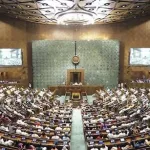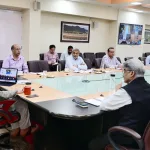EMPIRES OF LOGIC
Fundamentalism is traditionally associated with religious orthodoxy, characterized by strict adherence to foundational beliefs and rejection of pluralism. However, in recent decades, a new form of fundamentalism has emerged—not religious, but rational. “Rationalist Fundamentalism” refers to a rigid, often militant belief in reason, scientific empiricism, and secular modernity as the only valid means of understanding reality. While rationalism has undeniably advanced science and society, its radicalized form can be exclusionary, imperialistic, and politically instrumentalized.
Therefore, rationalist fundamentalism is not merely a philosophical stance but a political weapon—used to enforce ideological conformity, suppress dissent, and justify geopolitical interventions. It thrives in the rhetoric of liberal democracies, the governance of technocracies, and the ideological self-assurance of nations that see themselves as bearers of ‘universal values’.
The Enlightenment, often romanticized as the age of reason, birthed the idea that rationality could liberate humanity from ignorance and superstition. Thinkers like Kant, Descartes, and Voltaire advocated for critical inquiry, individual autonomy, and secular governance. However, the Enlightenment also carried colonial undercurrents—often portraying non-Western societies as ‘irrational’ or ‘primitive’, ripe for civilizational uplift.
In its historical trajectory, rationalism developed a missionary zeal: the belief that reason must dominate, that tradition must yield, and that other epistemologies—mythic, mystical, intuitive—were inherently inferior. This impulse now re-emerges in a hyper-secular global order, one where rationality is sometimes used not to liberate, but to silence.
Post-9/11 geopolitics marked a resurgence of rationalist language in military and diplomatic discourse. The U.S.-led wars in Afghanistan and Iraq were justified not only on security grounds but also as attempts to “bring democracy,” “educate women,” and “modernize” archaic societies. These interventions were couched in rationalist rhetoric—framing liberal democracy, secular governance, and market capitalism as universal norms.
However, this universalism ignored complex local histories, cultural frameworks, and indigenous knowledge systems. The rationalist dogma of “one-size-fits-all” modernity bred chaos, resentment, and enduring instability in much of the world.
The Russia–Ukraine war is often narrated as a struggle between autocracy and liberal rationalism. Western nations portray their support for Ukraine as a defense of rational international law and democratic norms. Meanwhile, Russia frames its aggression as a civilizational response to Western ideological overreach, positioning itself as the guardian of Orthodox tradition and Eurasian identity.
This ideological clash reveals rationalist fundamentalism’s geopolitical blind spot: it fails to comprehend or respect alternative modernities. Russia, regardless of its real politik motives, rejects the Western rationalist template and claims its own epistemic legitimacy.
In the ongoing Israel–Palestine conflict, rationalist fundamentalism appears in the form of liberal Zionism—a discourse that often portrays the Israeli state as a rational democracy amid an irrational, religiously-driven Arab world. Pro-Palestinian narratives, deeply tied to historical memory, spiritual connection to land, and post-colonial resistance, are often dismissed in Western media as emotional, ideological, or unscientific. Here, rationalist logic flattens moral complexity, masking structural violence under the cover of security, legality, and progress. It delegitimizes resistance that does not conform to Western norms of liberal civility.
China represents a unique case: a non-Western power deeply invested in rationalist modernity. The Chinese Communist Party’s legitimacy rests on its technocratic efficiency, data-driven surveillance, and scientific management of society. From COVID-19 containment to AI-driven governance, China’s model is rationalism on steroids—but fused with Confucian nationalism and authoritarian centralism.
Ironically, Western critics of China’s ‘irrational’ authoritarianism often fail to see their own version of rationalist control—through predictive policing, algorithmic governance, and de-platforming of dissent. Rationalism, it seems, has multiple cultural avatars.
Rationalist fundamentalism creates what philosopher Miranda Fricker calls “epistemic injustice”—a condition where certain voices are deemed less credible or intelligible based on epistemological biases. Non-Western, indigenous, feminist, and religious worldviews are often sidelined not because they are illogical, but because they do not speak in the idiom of Western rationality.
In geopolitics, this leads to the delegitimization of alternative paradigms: Islamic governance, tribal sovereignty, communal knowledge, or even emotional narratives of justice. The assumption that only secular, rational, liberal democracies are legitimate political forms is itself a form of fundamentalism—masked in objectivity. There is a striking irony in the fact that rationalism—once a tool of liberation—can become authoritarian when absolutized. Rationalist fundamentalists often ridicule religious dogmatists, yet replicate the same rigidity, intolerance, and messianic certainty.
What makes this dangerous in geopolitics is that rationalist narratives often accompany powerful states with military and economic might. Unlike religious fundamentalists operating from the margins, rationalist regimes and institutions hold systemic power—via NATO, the IMF, the UN, and media conglomerates. Their narratives shape what counts as ‘peacekeeping’, ‘development’, or even ‘truth’.
The antidote to rationalist fundamentalism is not irrationalism, but pluralism—an epistemic humility that acknowledges the validity of multiple worldviews. This includes religious perspectives, indigenous cosmologies, affective ways of knowing, and historically situated rationalities.
Geopolitical diplomacy must evolve beyond the binary of “rational democracy vs. irrational other.” Instead, it must foster inter-civilizational dialogue, cultural empathy, and recognition of epistemic diversity. Universities, media, and international institutions must decolonize knowledge, making room for subaltern voices and non-Western paradigms of governance.
If we are to build a more just global order, we must critically interrogate the hidden dogmas of our own belief systems. Rationalism, like any ideology, must be accountable to ethics, context, and humility.
(The Author is Assistant Professor Sociology, Department of Higher Education. Feedback: [email protected])








